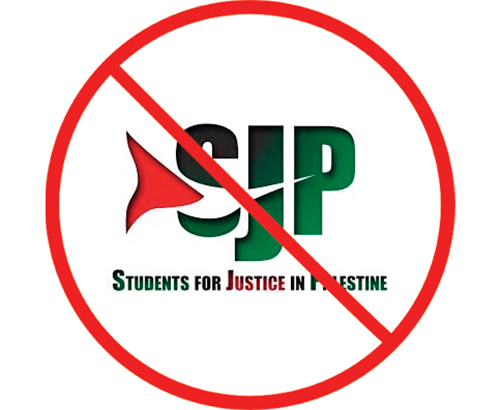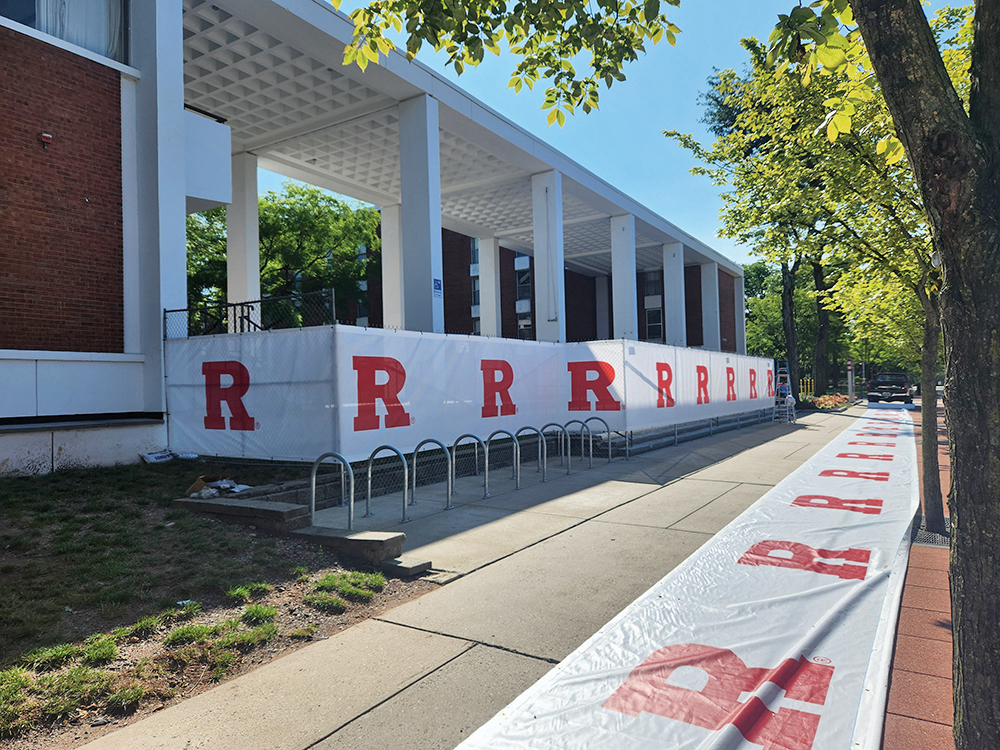
Rutgers University has suspended Students for Justice in Palestine (SJP) for the 2024-25 academic year at its New Brunswick campus for failing to comply with university directives and its disruption of final exams and university operations.
The student organization was notified about the university’s decision on July 25 and will remain suspended until at least July 4, 2025, said university spokesperson Megan Schumann, during which time it will not be recognized by Rutgers and can’t reserve rooms, participate in campus activities, join intramural sports or serve on councils.
An encampment, which had been on Voorhees Mall for four days, was ordered taken down by the university in May after word was received that students planned to disrupt finals, forcing the cancellation of a number of them. However, the pro-Palestinian students agreed to leave peacefully only after the university entered into negotiations with them and agreed to consider a number of demands, resulting in criticism from the Jewish community.
Jewish students had previously told The Jewish Link that they had been subjected to antisemitic taunts and threats throughout the last school year by pro-Palestinian demonstrators.
Rutgers had previously suspended SJP in December after its supporters blocked students from entering buildings and targeted Jewish students with hateful speech and other disruptive actions, but was later reinstated on a probationary basis. However, SJP violated the terms of its probationary status, resulting in the latest university action.
Schumann said SJP went through a conduct process in accordance with university policies, which included receiving a letter detailing the alleged violations and conduct procedures, as well as opportunities to ask questions and consult with conduct officials.

Schumann said the university doesn’t comment on code matters, which are protected by federal law.
At the time of its earlier suspension the university specifically cited a demonstration by SJP at the business school on the university’s Livingston Campus in Piscataway.
Among the other complaints received about SJP that triggered that suspension were disruptions of classes, a program, meals and students studying. There were also allegations of vandalism occurring at the Rutgers Business School while another organization event was taking place.
The university, with more than 7,000 Jewish students, has one of the largest Jewish student bodies in the nation.
Rutgers has also recently posted guidelines on free expression on its website applicable to “all members of our community,” including students, faculty, staff, visitors and external groups. They include articulating standards for tabling, flyers, chalking, fundraising, the use of signs and placards and other forms of promotion and engagement, identifying procedures for scheduling demonstrations as well as their time, place and manner, to ensure they don’t interfere with education, research or business functions of the university and requiring those wishing to hold demonstrations or other public forums to submit a “Free Expression Notification Form,” and obtain a free expression permit. They must also define procedures for protesting a campus speaker and conditions under which protesters will be asked to leave and may be subject to penalties.
Chabad Administrator Rabbi Mendy Carlebach said the news about SJP was welcome. He has previously said that students were subjected to taunts and harassment when leaving Chabad’s College Avenue building in the previous year.
“That’s amazing,” he said of the suspension. “This is really good news for the Jewish community.”
Rabbi Carlebach also noted that while walking around campus on Aug. 21 he noticed that Brower Commons, where protests and tabling take place, has been blocked off, although the university has said it is for construction.
Debra Rubin has had a long career in journalism writing for secular weekly and daily newspapers and Jewish publications. She most recently served as Middlesex/Monmouth bureau chief for the New Jersey Jewish News. She also worked with the media at several nonprofits, including serving as assistant public relations director of HIAS and assistant director of media relations at Yeshiva University.










